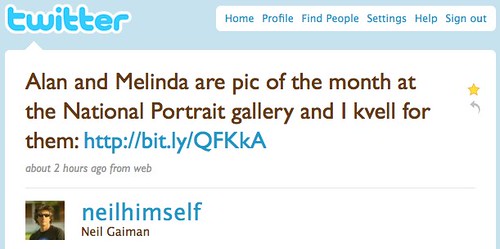So an Air France Airbus A330 disappeared over the Atlantic last night. It’s a frightening event, and the quasi-certainty that 228 people died, maybe without a trace, in a cataclysmic accident, is terribly sad.
BBC news quotes the French president Nicolas Sarkozy’s public address: “It is a catastrophe the likes of which Air France has never seen.” The wording of the quote made me think. It sounds a bit overly convoluted to my ear, but then, this may very well express a level of pathos appropriate to the situation. Sarkozy, of course, spoke French. Interestingly, this exact wording is all over the English-language press. It must have come from an early press release: it’s doubtful there are official English translations of the pronouncements of the French president.
What is the French original? The paper Libération’s habit of publishing such things verbatim — though cleaned up — helps us out. Here is the first bit of Sarkozy’s public declaration:
Cette nuit nous avons perdu la trace d’un avion d’Air France avec 228 personnes à bord, passagers et personnels d’équipage. Nous n’avons aucun élément précis sur ce qui s’est passé. C’est une catastrophe comme jamais la compagnie Air France n’en avait connue.
The French construction employed by Sarkozy, which has no one-to-one correspondence in English, goes a long way to explain the translator’s choice. Ne … jamais can mean “never” or “ever”, depending of polarity, and there’s the partitive pronoun en, which refers back to une catastrophe. We could gloss the French as “This is a catastrophe like never the airline Air France [of it] had known,” or, using the more idiomatic present perfect, substituting seen for known, and cleaning up the word order, “This is a catastrophe like the airline Air France has never seen.”
The translator’s thought process now becomes clearer:
- They aimed at preserving the comparison “like”, but getting rid of the informal aspect
- They were quite happy to preserve the partitive en, somehow
“Like” therefore becomes nominalized as “the likes of which”.
In order to to get input from other English speakers, I asked around on Twitter and Facebook, provocatively, whether “the likes of which Air France had never seen” sounded clumsy. Several people were kind enough to reply:
- Some found nothing remotely remarkable about the formulation, or even consider it the preferred way of rendering the original French
- Some came out close to my gloss, with “a catastrophe such as Air France has never seen” or even “a catastrophe like Air France has never seen”
- Some preferred turning “never” into “ever” (or left it out) and “like” into “unlike”, and even managed to slip the en back in in the form of “any”: “a catastrophe unlike any Air France has (ever) seen”
- Some, including myself, went for a bold recasting: “an unprecedented catastrophe for Air France”
- Finally, the linguist John Lawler came out in favour of “a catastrophe like Air France hasn’t never seen”, but implicitly admitted this version was really quite impossible, adding: “Alas, English Negative Concord was lost with the Dative case, and has been replaced with Negative Polarity.”
Quite a cornucopia of choices here.







